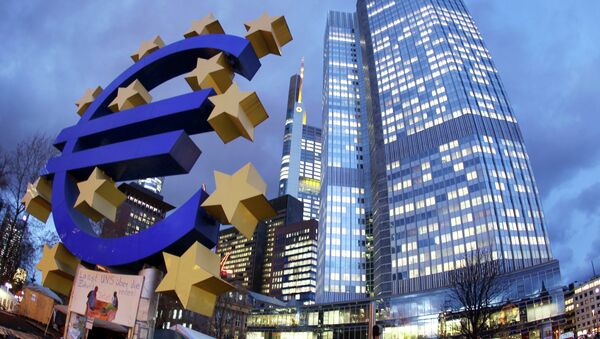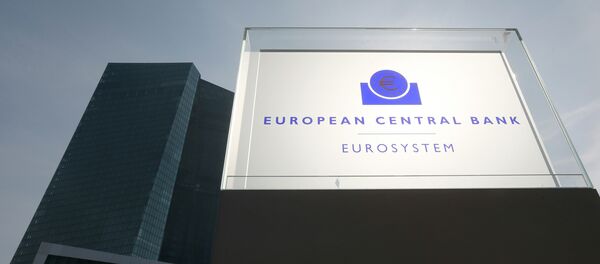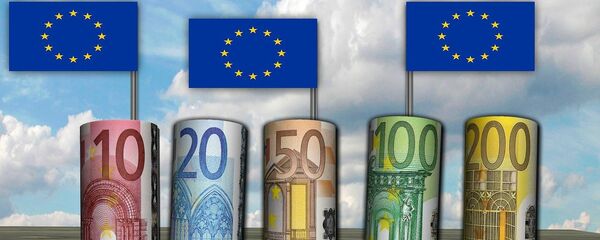The asset-purchase program is part of the ECB’s quantitative easing plan. The pace of buying in June compares with a target of €80 billion per month. Thus, the bank is directly investing into the European economy, bypassing the banking system.
This program creates significant risks while its advantages are questionable, financial expert Ernst Wolff said. He warned that the initiative may result in a total financial collapse.
In addition to corporate bonds, the ECB is buying government bonds. However, according to its rules, the bank cannot purchase bonds at a yield lower than the bank’s deposit rate, which is currently —0.4 percent.
However, Wolff noted, the ECB usually violates the rule, in particularly buying German government bonds.
"The ECB in its current forms and other large institutions don’t obey the rules. The financial system is a mess. Three years ago, no one could imagine a negative interest rate or the ECB buying junk bonds. But now the entire system is out of control," he told Sputnik.
The ECB also cannot get access to the shares of some German companies. But now the ECB is probably involved in the stabilization of Deutsche Bank, the expert pointed out.
Meanwhile, if the Central Bank decides to ease rules on buying assets European leaders are likely to oppose the move.
The expert also criticized the ECB monetary policy, saying it is aimed at delaying the bankruptcy of the eurozone.
According to Wolff, the ECB failed to stimulate the economic environment in Europe because it has been investing "cheap money" into speculations, not real economy. Another problem is that the bank failed to control the inflation rate. Instead, the ECB is giving money at extremely low rates to speculators, creating a bubble in the financial market.
"Currently, there are growing bubbles in bond, stock and real estate markets. The trend cannot be reversed. We’re nearing a grand catastrophe," he warned.
In this context, an economic collapse is likely to be followed by a collapse of the entire European integration policy, Wolff said.
"The European Union is likely to fall apart. But no one can predict how it may collapse. Brexit has only intensified nationalist tendencies across Europe. The risk of a collapse is mounting," he concluded.





